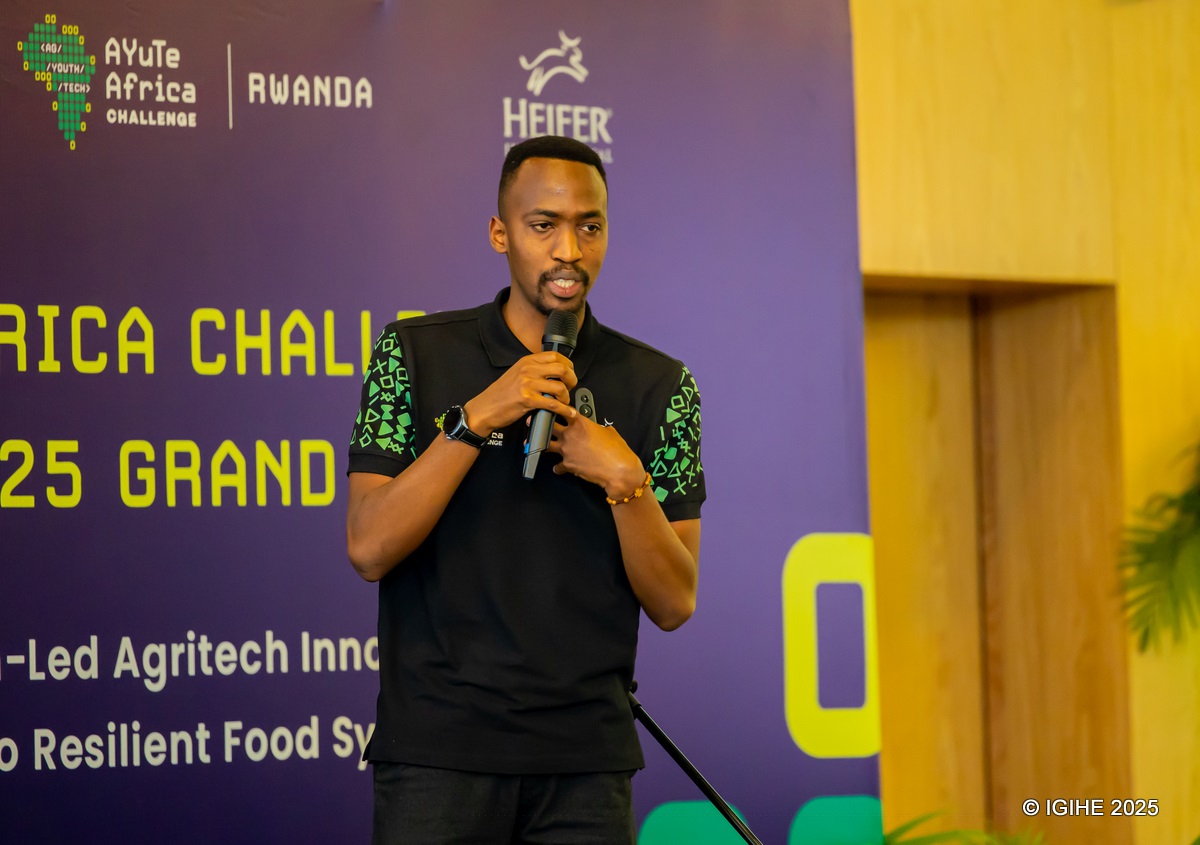Muyombano Happy Axel, a 25-year-old Rwandan, is the founder of Ampere Vision Rwanda, a company that has developed drone technology powered by Artificial Intelligence (AI).
This drone is capable of identifying crops affected by pests and spraying pesticide only on the infected areas, rather than the entire field. It can also water crops based on their specific water needs.
Muyombano, currently a third-year university student, says that using AI to apply pesticides will help small- and medium-scale farmers treat large crop areas quickly and cost-effectively since the pesticide is only applied to crops that actually need it.
In an interview with KURA, he explained how the technology works and why it is a timely solution for modern agriculture.
“This is AI-powered agriculture where the drone’s camera is given commands and acts like a human eye—it can see and recognize different objects. We program it with data on how infected crops look compared to healthy ones, allowing it to identify which crops need treatment and what kind of treatment is required,” he said.
He went on to explain that once the camera gathers the data, the drone automatically sprays the right pesticide only on the affected crop.
This approach is environmentally friendly since only necessary areas are sprayed, and it is faster and cheaper than traditional machines because it uses less labor and energy.
The process will only require one technician, while the farmer just purchases the pesticide, and Ampere Vision Rwanda will charge a fee for the drone service.
Muyombano started developing this project in 2023, conducting feasibility trials, and has already won multiple awards.
Currently, the project is awaiting final approval for drone operation licenses, after which it will begin full-scale implementation. However, Muyombano notes that they are still seeking adequate funding to purchase initial equipment.
“By 2028, we aim to have about 50 large drones, each capable of carrying 10 liters of pesticide, enabling them to cover significant land areas. Farmers would pay for the service, and we hope to become self-sustaining without relying on external aid,” he added.
Muyombano advised young people to focus on developing strong project ideas before thinking about money, stressing that a solid idea naturally leads to implementation opportunities.
“In Rwanda, there are many opportunities available for youth. In a few years, we’ll no longer be considered youth, so we must seize those opportunities now. If an opportunity comes and you’re unprepared, it’s useless. If it doesn’t work in one place, try another—but the key is being prepared with a clear project,” he said.
Muyombano’s project ranked in the top five in the 2025 AYuTE Africa Challenge, a competition involving over 500 tech-driven agricultural startups.


